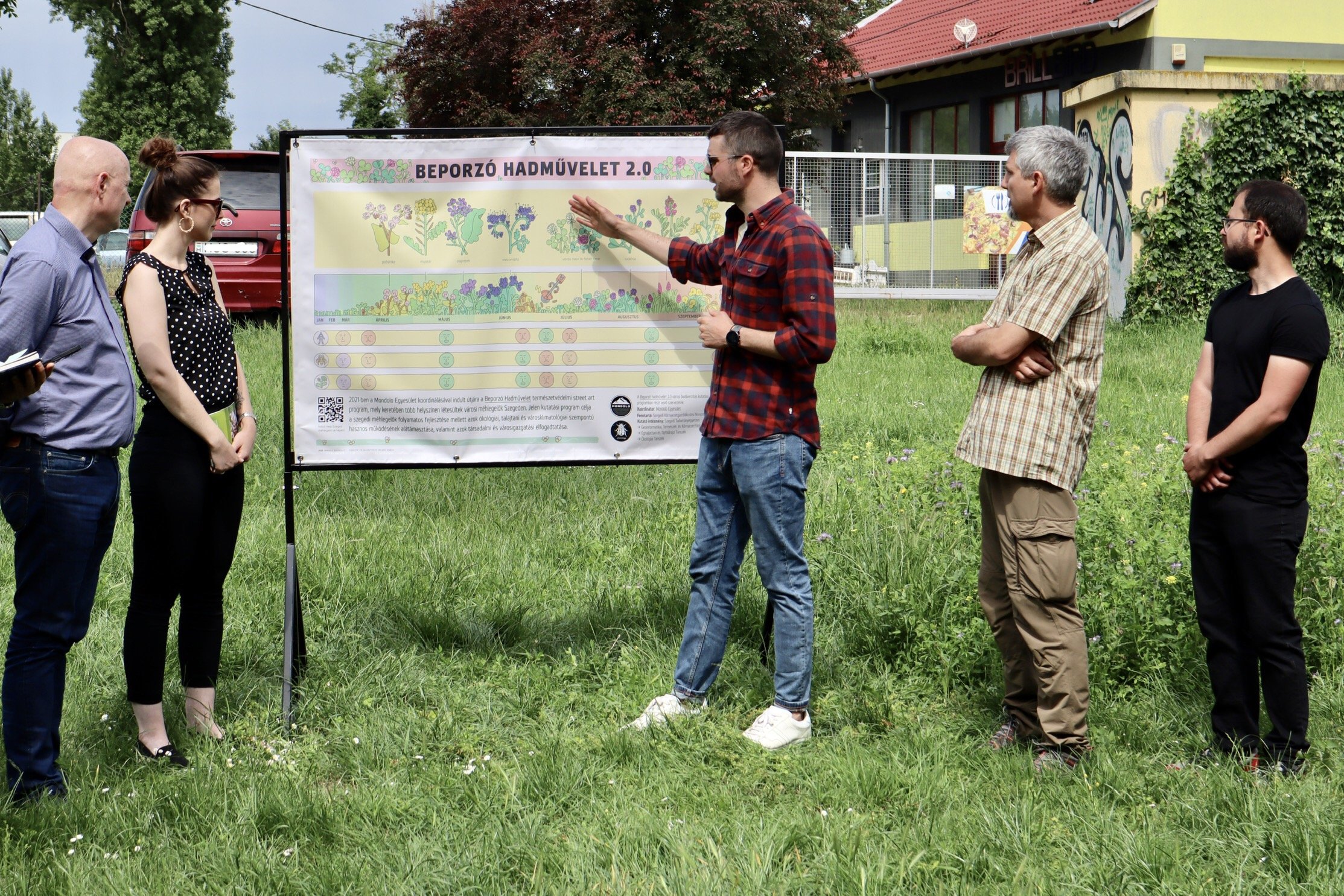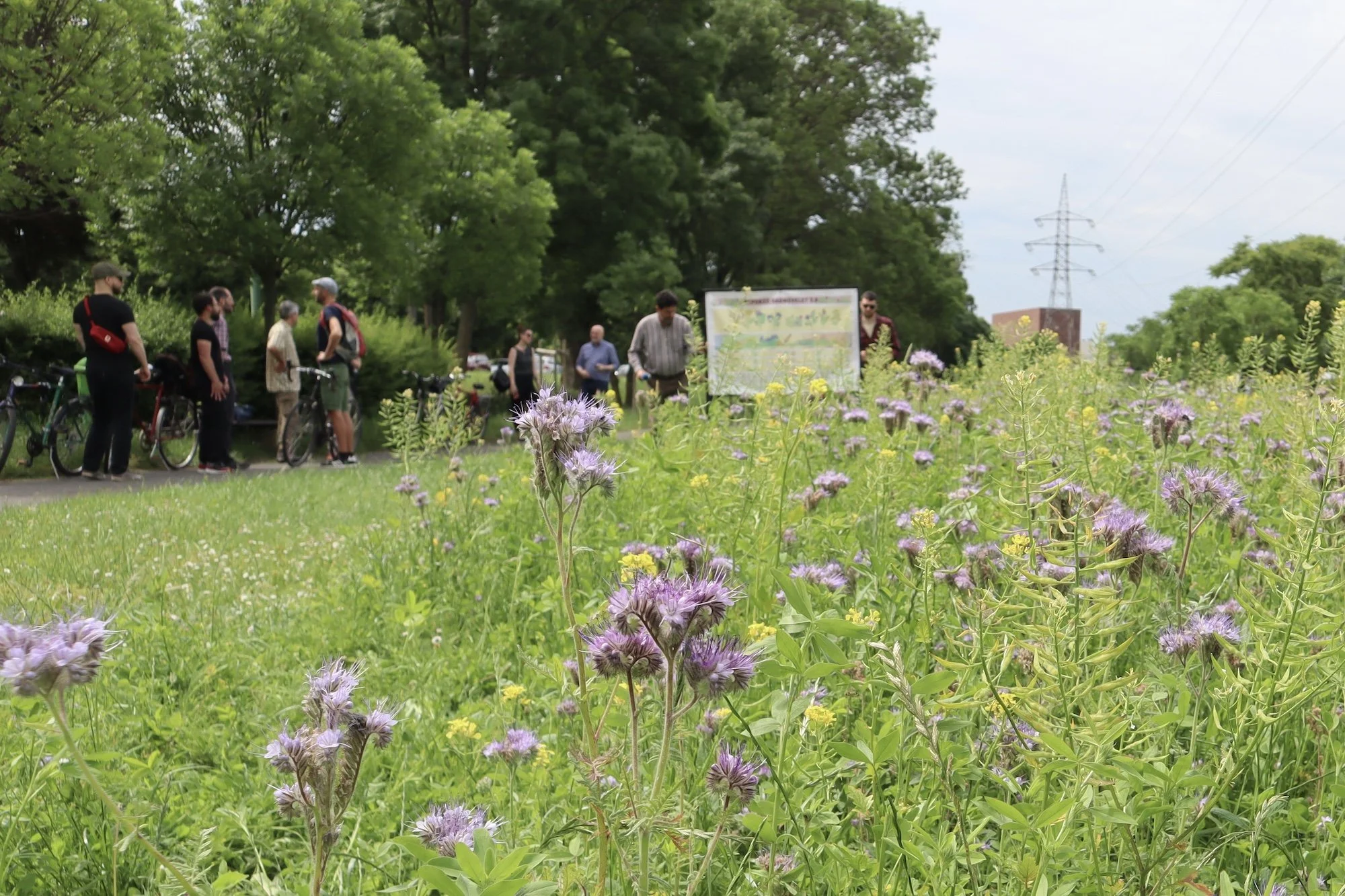Mondolo Association's bee pasture project in Szeged enters second phase
Mondolo Association's bee pasture project enters second phase, the NGO's co-founder Tamás Ézsiás told reporters yesterday in Szeged.
Over the past years, Mondolo initiated street art pieces and installed bee pastures and artificial bird nests in the city as part of their urban environmental projects.
The association's nature conservation project called Beporzó Hadművelet (translates to Operation Pollinator) started in 2021 and included the establishment of several bee pastures in Szeged. The first phase focused on breaking down prejudices about pollinators, providing general information, and presenting the institutions participating in the project. In the second phase, the main role will be to conduct research at the bee pastures. The program runs in cooperation with the University of Szeged and the City of Szeged.
In the second phase of the project, the research conducted from February to late autumn investigates the ecological, soil, and urban climatology benefits of bee pastures. Scientists and students of SZTE will examine the role of high vegetation — that breaks up the well-kept lawns of the parks — in protecting the habitat, improving the climate, increasing biodiversity, and retaining water - Tamás Ézsiás said at the press event, held at one of the newest bee pastures established by Mondolo. This year, the number of bee pastures has been doubled and can be found at twenty-two places in Szeged.
"Due to global warming and climate change, Szeged's climate is becoming drier and hotter. If we do nothing, the realistic scenario is that many plants in Szeged will die out. Active action is needed as soon as possible to mitigate unfavorable changes. We need to transform the green areas, we need to find plants that can withstand the warmer, drier urban climate, this way we can act against climate change" - said Deputy Mayor Sándor Nagy, who was also present at the press event. He also added that the second phase of the project Operation Pollinator is important in this context too.
Attila Torma, a lecturer at the Department of Ecology, University of Szeged, said that during the research, they will examine which pollinating insects, in which periods, and in which life stages occur in the bee pastures. The effects of these areas on the soil are also monitored, including changes in local water infiltration, water retention, soil life, and soil structure.
The project's third phase will be to determine the financial aspects and the direct or indirect benefits of transforming urban green space management in this way.
Operation Pollinator is a global initiative of Syngenta to restore native pollinators in landscapes by creating essential habitats.
Photos: Szilvia Molnar / Szegedify
Related: HOUSE MARTIN NESTS INSTALLED AT THE PUPPET THEATER'S FACADE IN SZEGED
